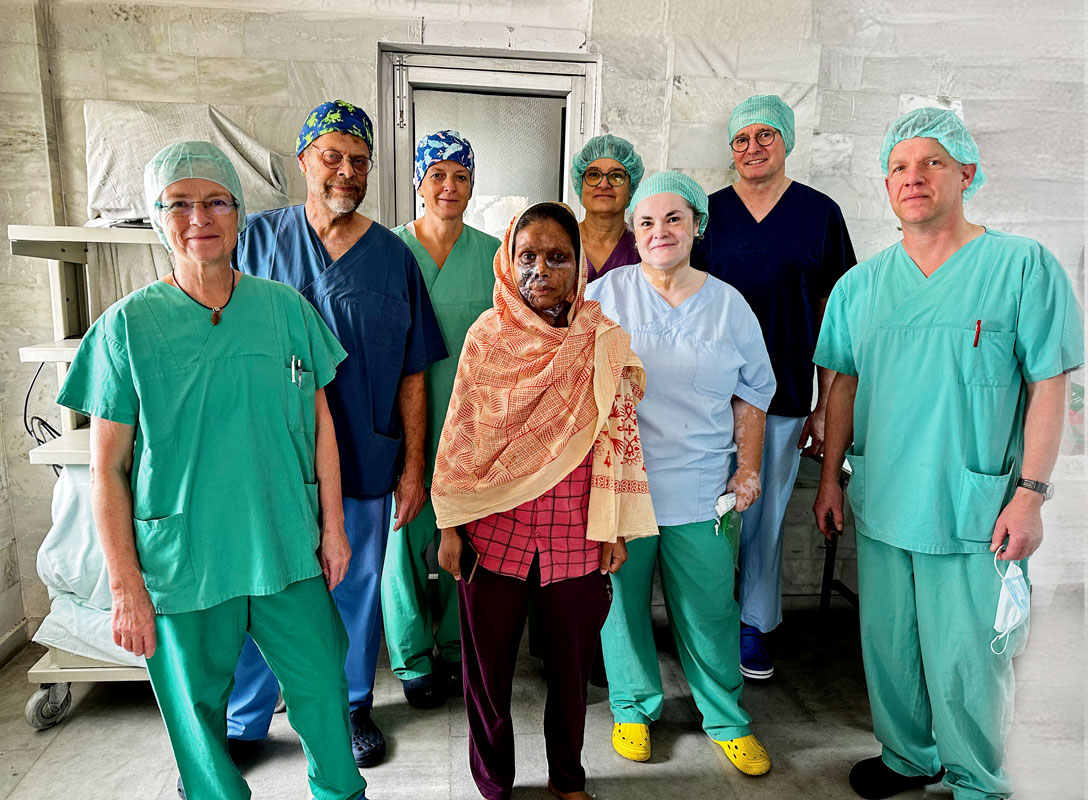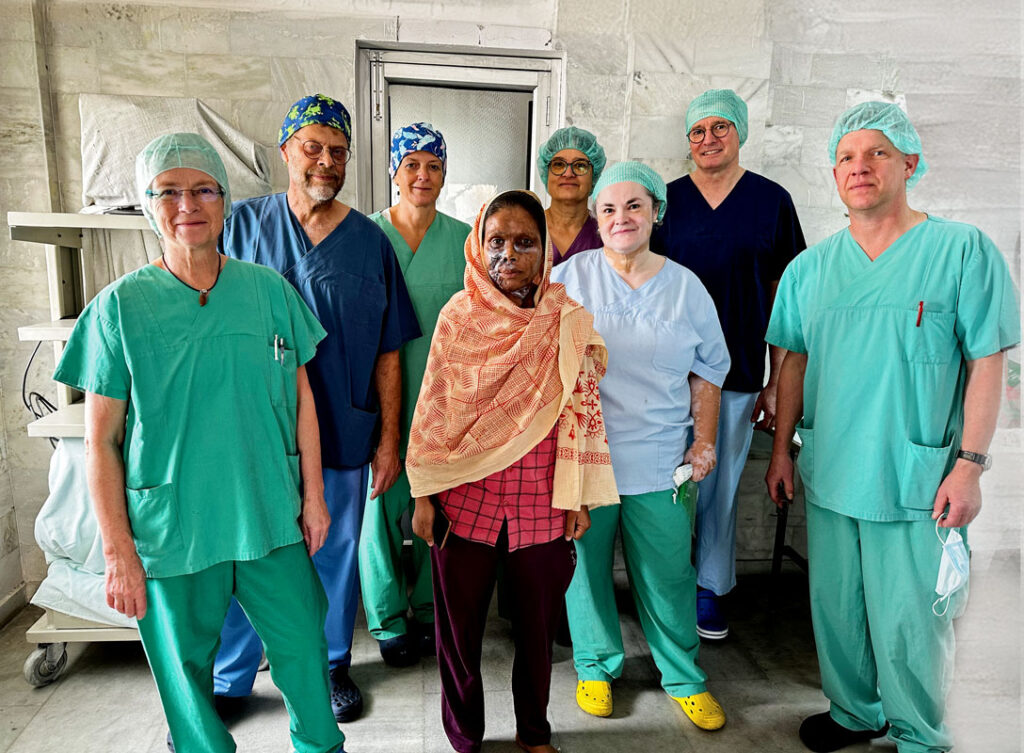Rajiv Bhalla, past president of RC Ranipur, RID 3080, expresses immense joy and pride as he reflects on a programme which “began by chance and has given new life to over 1,000 people who were suffering from burn injuries.” Since 2008, the club has been organising an annual camp to treat the physical and mental scars of burn survivors.

“It all began when our past president Sanjeev Mehta met Dr Hajo, head of Interplast-Germany, during a sightseeing trip in Rishikesh.” Their conversation led to a discussion about the two organisations — Rotary and Interplast, a non-profit that does plastic surgeries in developing countries. Dr Hajo expressed his desire to expand Interplast’s reach to more people in India, but “found navigating the government mechanism challenging. At our next club meeting we discussed this further as we were excited to work with Interplast.” A government hospital in Haridwar agreed to let them use its OPD ward and operation theatre.
Since then, the club has been organising a special camp for 15 days after Diwali every year, where a team of 10–12 doctors comprising anaesthesiologists, trauma care, plastic and general surgeons from Interplast perform reconstructive surgeries for burn/acid attack survivors. “Around 70–80 people are treated at each camp. Some may require multiple surgeries and multiple visits depending on the severity of the trauma,” explains Bhalla. The doctors perform 150–200 surgeries at each camp but do not charge anything for their services. “They fly down from Germany at their cost. We absorb their accommodation and travel expenses from Delhi to Haridwar,” he says. The next camp is scheduled in November. Mehta is the chair of this annual project which is into 16th year now.
The project has given new life to over 1,000 people who were suffering from burn injuries.
During the first two days the medical team examines and shortlists individuals for corrective surgery and their treatment is scheduled subsequently. Local doctors are also involved to ensure post-operative care which lasts about two weeks. The German doctors are consulted on video calls in case of any emergency during the post operative period. Psychological counselling is included as part of the treatment. “Rotary Anns also assist in the project. They help in translating communication between the patients’ caretakers and the German doctors, and in dressing surgical wounds,” he says.
Children and adults from across the state, and from Nepal, Bihar and UP sign up for the camp. “During the initial years we publicised the camp through posters and banners, but now it is so well-known that people are well aware of the schedule which is around October-end or early November,” says Bhalla, a third generation Rotarian since 1987 when the club was chartered. He is the son of PDG Prem Bhalla; his grandfather Banwari Lal Bhalla was the charter president of RC Haridwar and mother, charter president of Inner Wheel Club of Haridwar.
The surgery camp “is an integral part of my life. It makes me feel warm and peaceful when I think of the many lives it has changed,” says Rajiv Bhalla as he recounts how it changed a teenager’s course of life. “Anubha was a victim of an acid attack after she had complained to her school headmaster about a group of boys who were harassing her in school. She has been a regular at our camp for five years now. The doctors have done wonders to her disfigured face year after year. They have reconstructed her eyelids, ears, nose and mouth; today Anubha is lot more confident in facing the world and dreams of becoming a teacher.”
Another success story is that of Sapna from Saharanpur, who after a year of marriage, met with a fire accident while cooking. Her chin and hands got fused with her torso, and her face was disfigured due to post-burn contractures. “A depressed and disheveled Sapna was brought to the camp by her husband four years ago. The doctors performed corrective surgeries on her hand and chin. We rejoiced when we later heard that she had conceived.”
The club, with its 40 Rotarians, bears the camp’s annual cost of ₹25–30 lakh. This includes transportation, accommodation and food for the patients and their caretakers, and hospital consumables. The club handles extensive preparations including permissions from the Uttarakhand government and the medical team’s visa formalities. “We get them temporary employment visas as they are not permitted to work with tourist visa. The doctors have to be registered with the National Medical Commission where their credentials must be submitted each year.”
Bhalla shares a heartwarming story of Interplast’s contribution of ₹17 lakh to the club for Covid relief activities. “In March 2020, the German doctors had organised funds for their trip to India for the annual camp. But when Covid struck and travel was paused, they generously donated their savings to our club for Covid relief work.”
RC Ranipur will soon be launching a ₹1-crore mobile mammography project with global grant support to screen women in Uttarakhand for breast cancer.








